
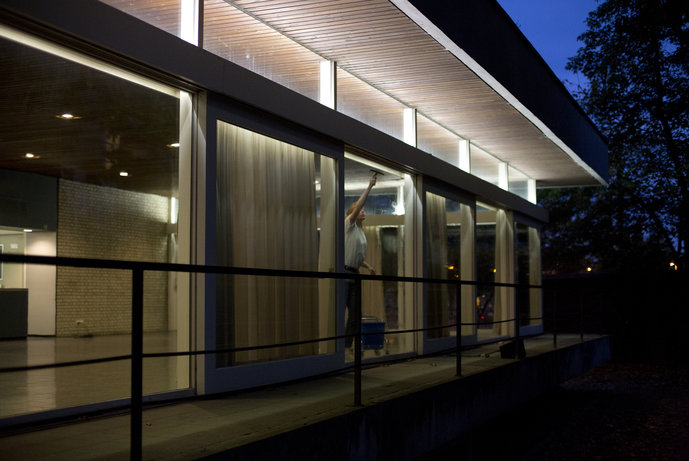
© C. Kobel, V. Pfister

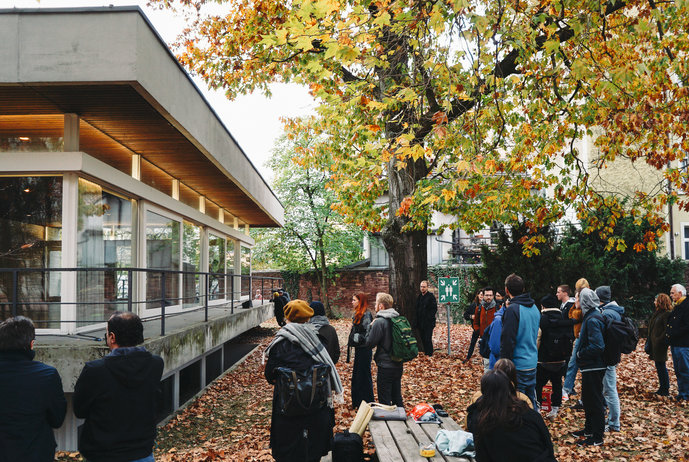
© C. Kobel, V. Pfister

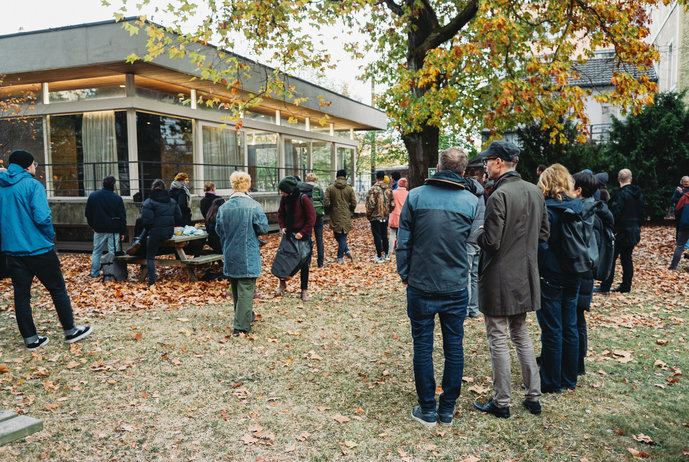
© C. Kobel, V. Pfister

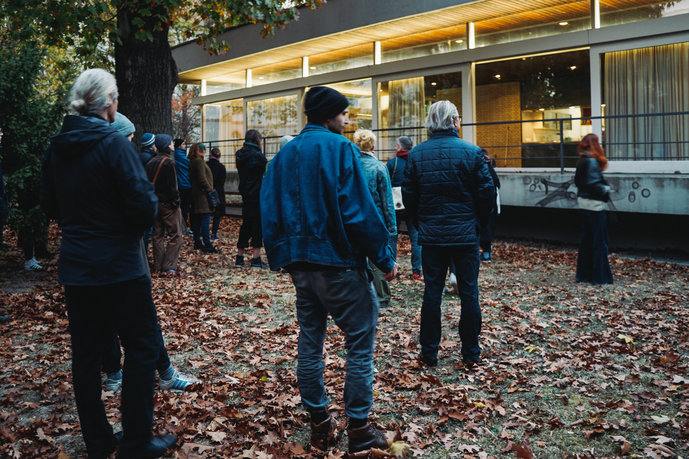
© C. Kobel, V. Pfister

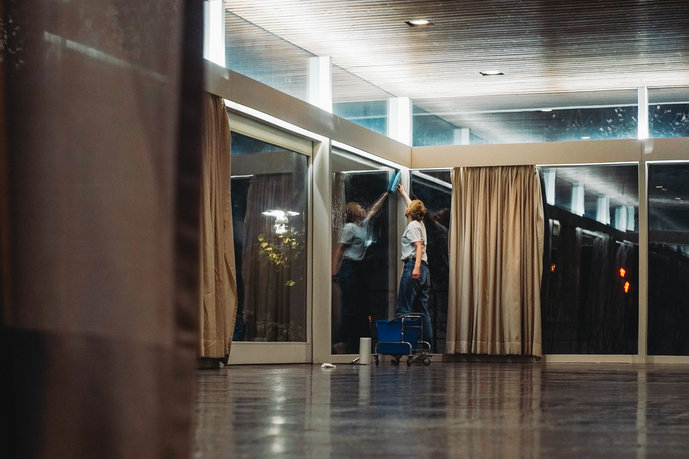
© C. Kobel, V. Pfister

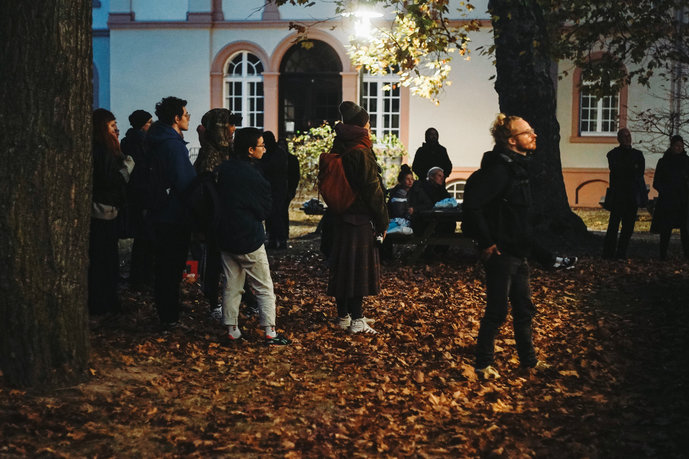
© C. Kobel, V. Pfister

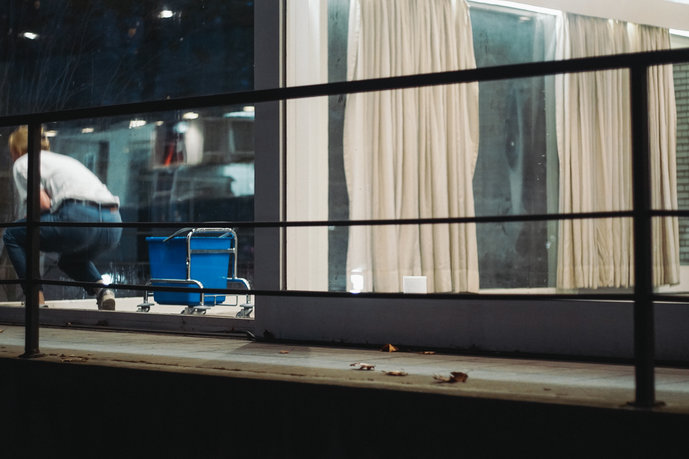
© C. Kobel, V. Pfister

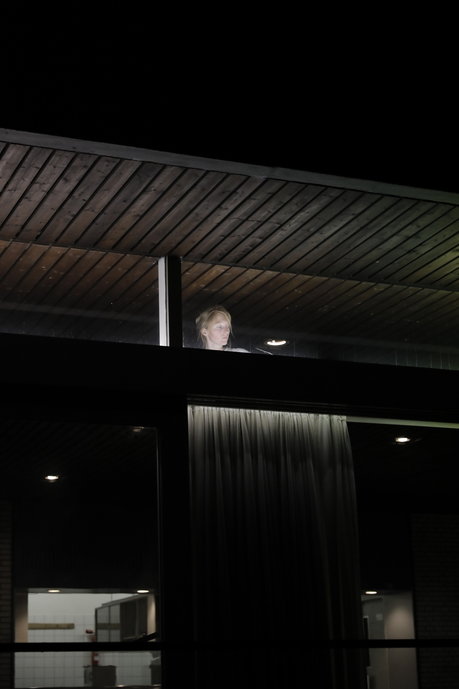
© A. Theis

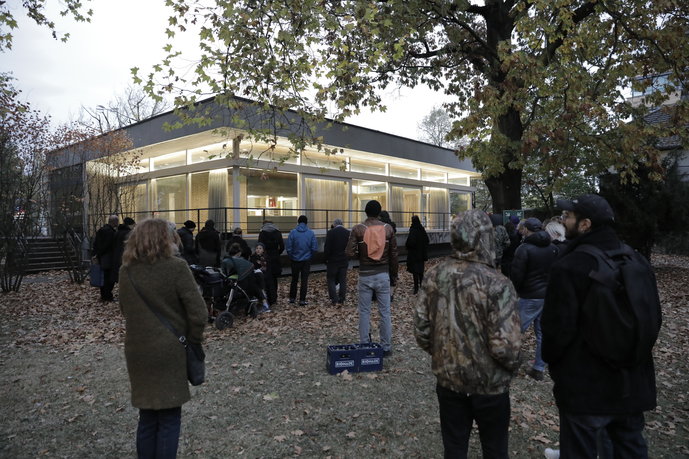
© A. Theis

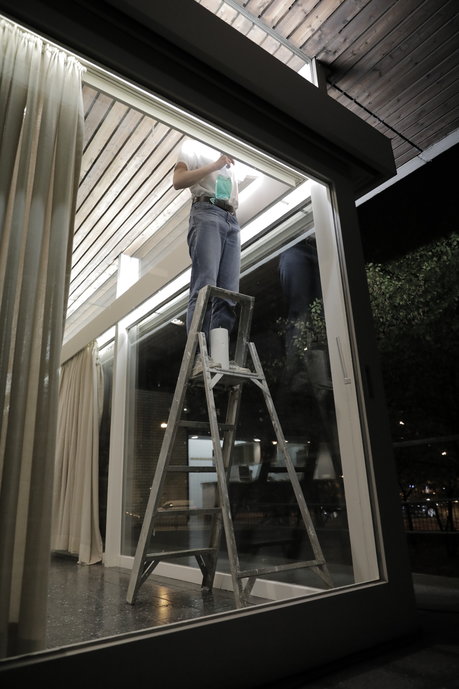
© A. Theis

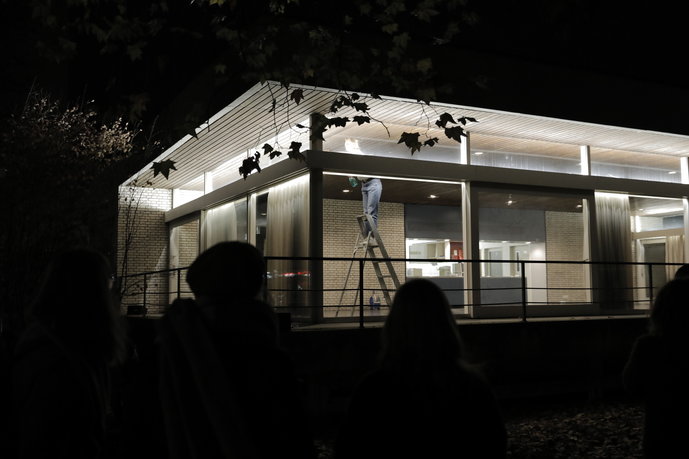
© A. Theis
The work Prolog 1 (Pavilion) began with an artistic interest in the spatial cartographic aspects of cleaning – as a principle of appropriation – as well as its sculptural quality.
The work, which took place on October 23, 2018 from 5 – 8pm in a Modern 60s pavilion encased in glass on the corner of Brauer- and Gartenstraße in Karlsruhe, consisted visually of the cleaning of the inner space of the pavilion. From the four speakers attached to the pavilion exterior, visitors in the surrounding park could hear text fragments about the pavilion itself: its spatial location, its (in)accessibility on a structural and institutional level, as well as its architecture – acts, stories and speculation. Over three hours, fragments of text were also being continually selected, assembled and mounted through the foil of the cleaning act, creating an open narrative.
Born out of an intuitive affinity to the place, the work was to take place exactly in this pavilion – post-war architecture, a canteen building supposedly built by Egon Eiermann. A building that turns its back to the busy intersection, that is in fact prominently located and yet it remains hidden to the most part of the passers-by – a place that morphs between visibility, inaccessibility, opacity and mystery.
Only after the long process of gaining access to the unused mezzanine of the building and the intensive research that goes with it, was the focus of the work realigned to the elusive building and its hard to pin down history. The attempt itself to use this building as an exhibition space became a part of the work. In this way, the various forms of appropriation, cleaning and research finally came together on October 23, 2018, marking the day on which those present became witnesses of its existence. The visitors found themselves in the park, listening to the text fragments, while Judith Milz, alone inside, cleaned the pavilion for three hours, while dusk fell outside, becoming dark until finally, lights out, doors closed, the pavilion cleaned and the evening was over.
Supervision: Susanne Kriemann and Michael Bielicky